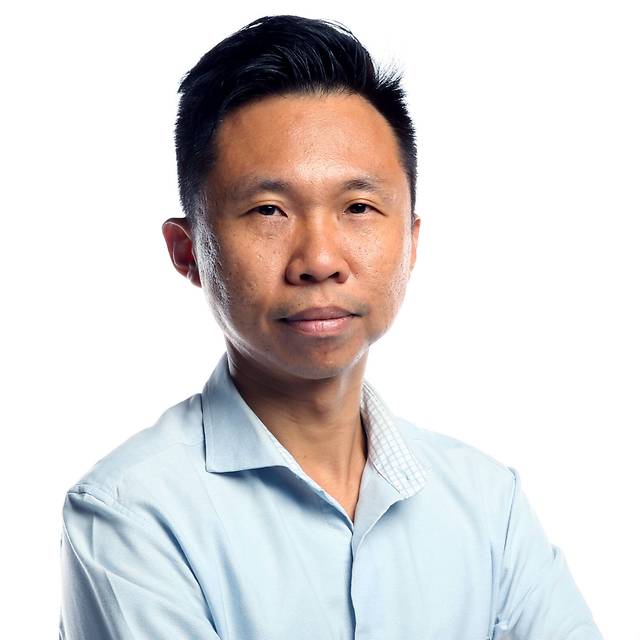ASEAN special envoy plans third trip to Myanmar; hopes to use Aung San Suu Kyi’s influence to end violence
Cambodia's deputy prime minister and foreign minister, Prak Sokhonn, spoke to CNA in his first in-person chat with a foreign media outlet since his appointment as the ASEAN special envoy.
PHNOM PENH: The Southeast Asian bloc's special envoy for the crisis in Myanmar said on Wednesday (Jul 20) that he is planning a third official trip to the crisis-hit country and that if he meets Aung San Suu Kyi, wants to use her influence to end the violence there.
Mr Prak Sokhonn, who is also Cambodia’s deputy prime minister and foreign minister, told CNA that he hopes to make this trip in the second week of September, ahead of the next United Nations General Assembly meeting, which is set to run from Sep 13 to Sep 27 in New York.
An alternative travel proposal would see Mr Sokhonn visit Myanmar in early October - just before the Association of Southeast Asian Nations (ASEAN) holds its annual summit in November. Cambodia holds this year's ASEAN chairmanship.
In his two previous official trips, Mr Sokhonn was denied access to Aung San Suu Kyi by the Myanmar military. The deposed leader is being held in solitary confinement in a Naypyidaw jail.
The junta has repeatedly denied Cambodia’s requests to meet Aung San Suu Kyi, citing her ongoing trials, which include multiple accusations of corruption and electoral fraud. She denies all charges.
"The most important things we will ask, or discuss with her, is about her view on the future of Myanmar. How she sees the way out of the crisis, how her political influence could have weight on the political process, the political dialogue that could lead to peace and reconciliation," said Mr Sokhon, who was speaking to CNA in his first in-person chat with a foreign media outlet since his appointment as the ASEAN special envoy.
“Another point would be to ask her how her principle of non-violence could influence all the armed factions in order to stop violence,” he said.
“When all armed forces stop fighting each other, they would have to come one day to the negotiation table, and then the way will be wide open for peace negotiations and national reconciliation.
“So Madam Aung San Suu Kyi definitely is still considered as one of the most important players in Myanmar, in political fields and also for peace and reconciliation.”
Mr Sokhonn said that in his previous visit to Myanmar in June 2022, military chief Min Aung Hlaing had told him that meeting Aung San Suu Kyi then was not yet possible but that it could happen "maybe at a later stage".
"SOME PROGRESS" IN PREVIOUS MEETING
In his brief with Phnom Penh-based diplomats, Mr Sokhonn described his second trip to Myanmar as "leaning towards some progress".
He said he had met with political parties and ethnic armed groups, and that he had made inroads into possible negotiations between the Myanmar army and groups labelled by the junta as "terrorists", such as the shadow National Unity Government (NUG) and its armed People’s Defence Force.
The military rulers had previously indicated they would not negotiate with such "terrorists".
"But I asked this simple question. If individuals, a group, or organisations changed their position, are willing to stop the fight, and asked to engage, to participate in peace negotiations, what would be your response?" Mr Sokhonn said, referring to his exchange with senior army negotiator Yar Pyae.
"There was some hesitation. And I continued. If we continue to consider (them) as terrorists and take them out of the equation, they would have no other choice but to continue the fight. And if they continue to fight, there will be no end to violence, no peace. If they have this will to engage with you in peaceful talks, what would be your response?" Mr Sokhonn said.
"And then came an answer I didn't expect. They (the Myanmar military) said yes, but those people have to change their mindset. (The Myanmar army) put in some conditions."
These conditions, Mr Sokonnn told CNA, include groups showing that they do not have the intention to destroy the junta-run government. They also must not have any intention to replace the government and will have to refer to the military-drafted 2008 constitution as the basis of negotiations.
“I said, well, at least the door is open. Conditions can be negotiated at a later stage, but at least the door is open and (the) way of political dialogue is unblocked,” Mr Sokhonn said.
Related:
ENGAGING WITH THE NUG
Progress in negotiations will also "in some way" pave the way for Cambodia to open a dialogue with the NUG, Mr Sokhonn said.
"But I have to say that we have heard many voices calling for engagement with the NUG. Not only from outside, but also among colleagues, ASEAN ministers, ASEAN foreign ministers. I have (especially) a very vocal voice from our colleague from Malaysia," Mr Sokhonn said, referring to Malaysia's foreign minister Saifuddin Abdullah.
"He has openly stated that he has engaged with the NUG. We have to recognise that countries are sovereign. They have their sovereign rights to engage with whomever they want. Whomever they consider for their best interests, for their own national interests," he added.
The NUG's foreign minister, Zin Mar Aung, met with US Deputy Secretary of State Wendy Sherman and Mr Saifuddin on the sidelines of a US-ASEAN summit in Washington in May.
Mr Sokhonn said he would not take the same approach as his Malaysian counterpart.
“I don't need to shout from a rooftop on what we are doing. You know that negotiations are often about discretion, and most of the time, it is done in a very discreet, if not secret manner.
“Just be aware that we are engaging with all parties concerned within our mandate,” said Mr Sokhonn, who declined to give further details.
When asked if this meant he had started talking to the NUG, Mr Sokhonn replied: “This is still confidential. And whatever we do, there will be an appropriate time when we will tell the public what we have been doing, with all those political players”.
So far, only the US and Malaysia have openly and informally engaged with the NUG.
CNA understands that at least two other ASEAN member states, as well as the Chinese embassy in Myanmar, are talking to the NUG.
LONG-DRAWN PROCESS
Despite Mr Sokhonn’s optimistic assessment of his second trip, Cambodia's engagement with the Myanmar junta has not entirely gone to plan.
Repeated requests for Mr Sokhonn to meet Aung San Suu Kyi have been denied. His plea to the military in June to transfer Aung San Suu Kyi from prison detention to house arrest also fell on deaf ears. Cambodia's Prime Minister Hun Sen’s appeal for the army to shelve plans to execute political prisoners was also ignored.
"Negotiation is about, you know, bargaining," Mr Sokhonn said of the rejections.
"You put something new, and then you take it back. And sometimes it's disappointing, I have to say, when we advance two steps and then we have to get backwards one or two steps. That’s very frustrating," he said.
"But I won't give up. What we have achieved so far is already encouraging enough to give us hope that for the future, despite all those hurdles, we can advance well and achieve the goal of helping Myanmar back to normalcy."
ASEAN NOT BEING TOO SOFT ON MYANMAR: SOKHONN
Mr Sokhonn noted that other ASEAN countries have called for stronger measures against Myanmar.
Singapore, in particular, has pointed to the lack of "any significant progress" in the implementation of the ASEAN Five-Point Consensus on Myanmar since its adoption last year.
Malaysia's Mr Saifuddin has recently pressed for more pressure on Myanmar, adding that he was concerned the Myanmar military might be emboldened by ASEAN’s lack of seemingly non-concrete actions.
"I would say that some ASEAN countries have been too hard against Myanmar," Mr Sokhonn said.
"We have principles enshrined in the charter of ASEAN - the principle of non-interference, the principle of equality. Each ASEAN member state is equal, and that is not the case with the treatment that we have imposed on Myanmar.
"Myanmar has been asked to downgrade its representation at all ASEAN meetings, until today. And that is not right. Why? Because nothing is said in the charter," Mr Sokhonn said.
“There is no downgrading representation of ASEAN member states in the charter. We have to respect the sovereignty of every member state.
“We cannot interfere in the internal affairs of any individual member state. But we did interfere, to a certain degree. We downgraded the Myanmar representation (to) a certain degree; we have turned a blind eye (to) those principles,” he said.
On ending violence in Myanmar, Mr Sokhonn said that there needs to be a way to reduce violence by all sides exercising utmost restraint.
"That explains my hope to see Aung San Suu Kyi, playing some role with her principle of non-violence to persuade the PDF (People's Defence Force) or any armed forces to stop fighting," he said.
"That would contribute to the ending of the violence. Otherwise, I'm afraid we are going to see continued violence from any side, from both sides."
Watch the full interview with Mr Prak Sokhonn on In Conversation, Jul 27 at 9pm Singapore time.















